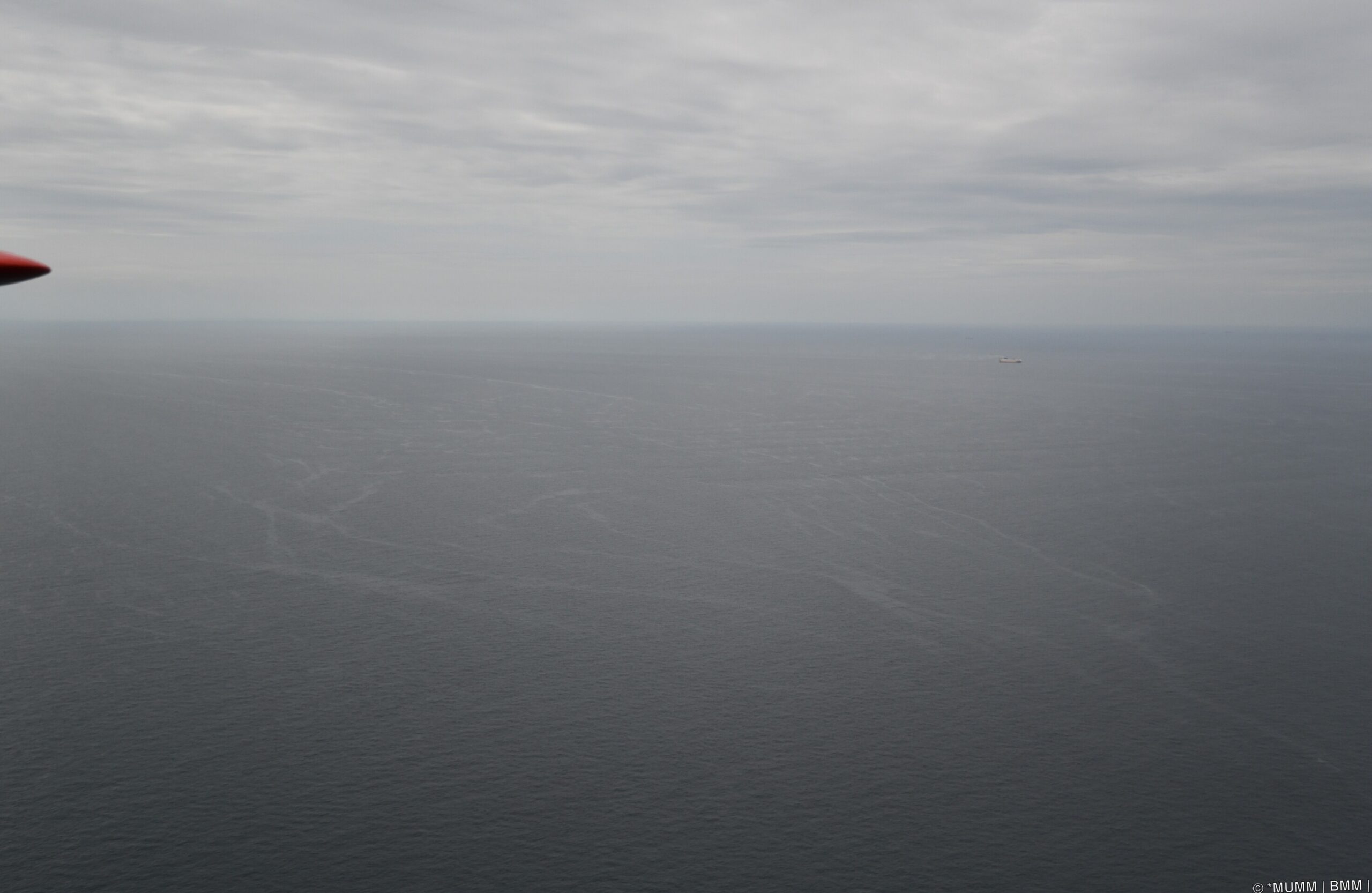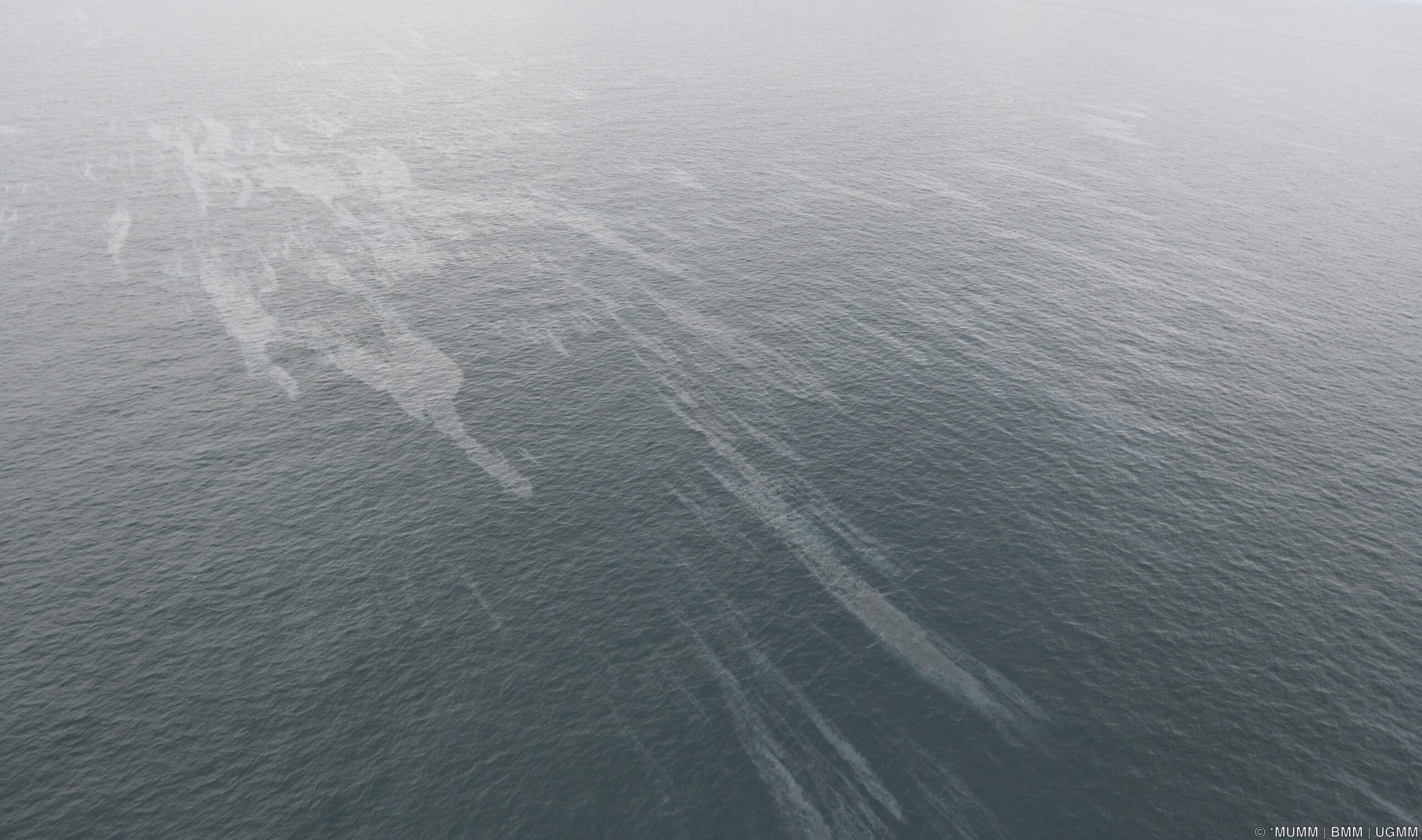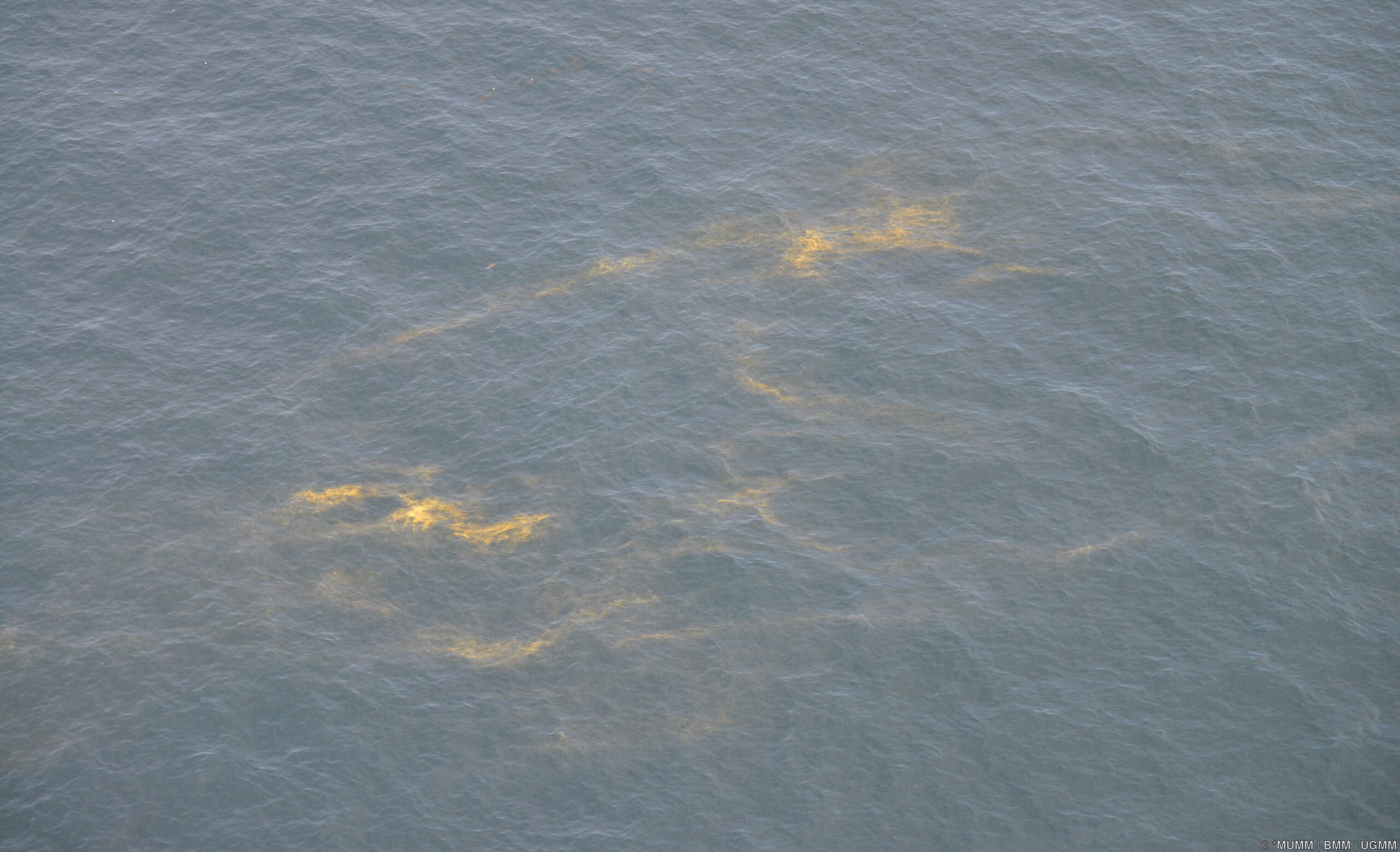Over the past few weeks, the surveillance aircraft of the Royal Belgian Institute of Natural Sciences (RBINS) documented a remarkable number of pollutions at sea. Especially in terms of oil pollution, these go against the trend of recent years. The observations illustrate the great importance of aerial surveillance over the sea.
On 20 June, a fishing vessel was caught red-handed while discharging oil in the Belgian Exclusive Economic Zone.
On 27 June, a large oil slick was observed but no polluter could be identified. This is one of the largest oil spills that did not result from an accident in Belgian waters in the past 15 years. The minimum volume discharged was estimated at 1.6 tonnes of oil.


A day later, two ships were observed carrying out tank cleaning activities, resulting in discharges of vegetable oil and derivatives into the water. Whether or not these were legal will have to be determined by a port inspection. The discharge from one of the two tankers was initially detected in the morning by a European Maritime Safety Agency (EMSA) satellite. When the surveillance aircraft checked the vessel several hours later, it was found that the tanker’s tank cleaning operation was still in progress.

In none of these cases was there a risk of the contaminants washing up on the coast.
Against the trend
The observed oil spills in recent days are in sharp contrast to the general trend shown by the results of 30 years of Belgian aerial surveillance. These illustrate that marine oil pollution has become a rare observed phenomenon in the last decade. The number of discharges of noxious liquid substances other than oil did experience a slight increase in recent years, with 2022 being the year with the highest number of observed discharges (averaged per flight hour) since observations began in 1991. Despite the fact that most of these discharges are probably legal, in line with international discharge standards, they nevertheless involve fluids that can be harmful to the marine environment to very varying degrees.
The observations in recent weeks should not necessarily cause us concern, as it may be due to coincidence that several offenders were active in Belgian North Sea waters in a short time span. However, these results do show that further close monitoring and enforcement remains required, both at sea and ashore. And so, also in the air, a fast-operating surveillance platform remains an absolute necessity.
